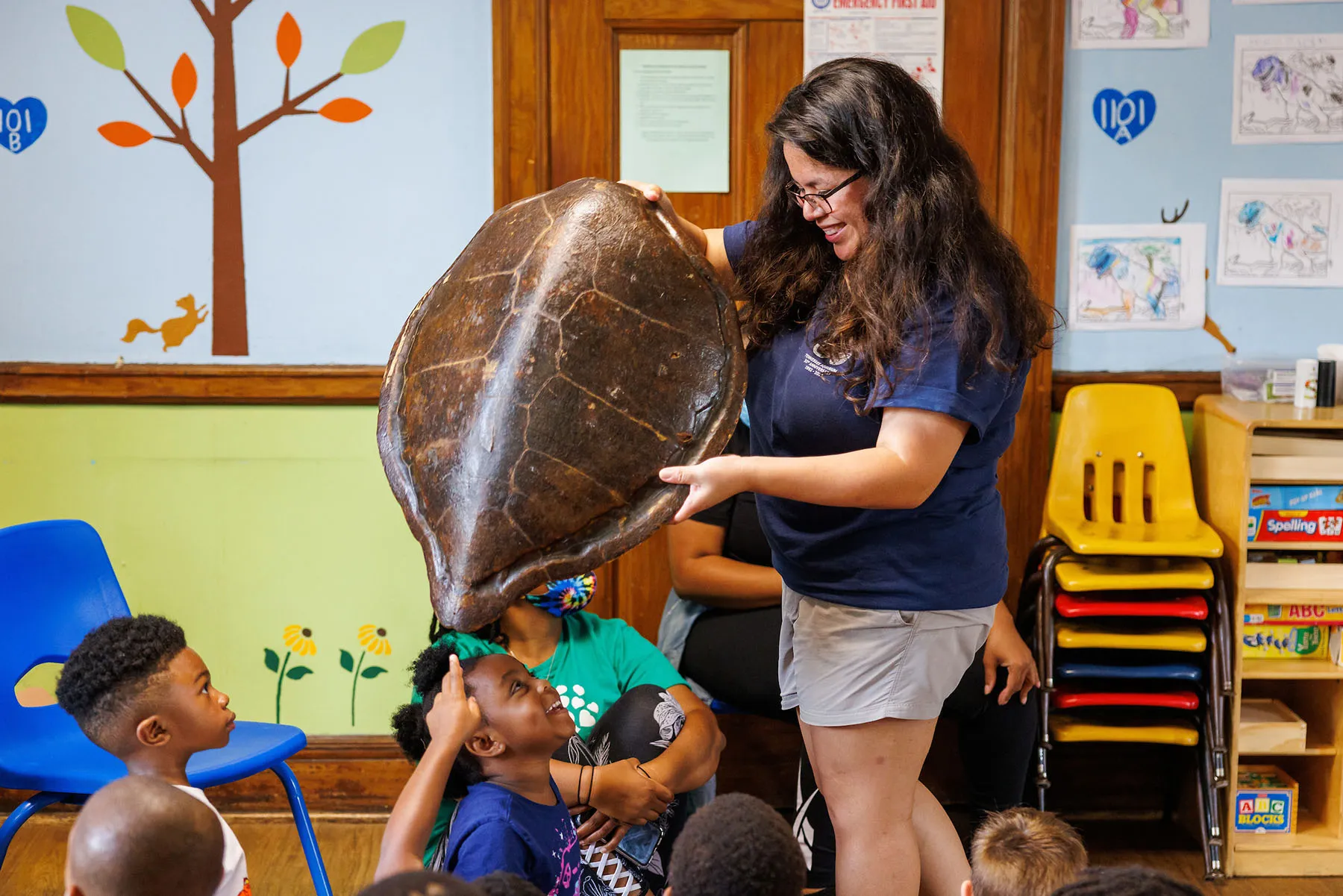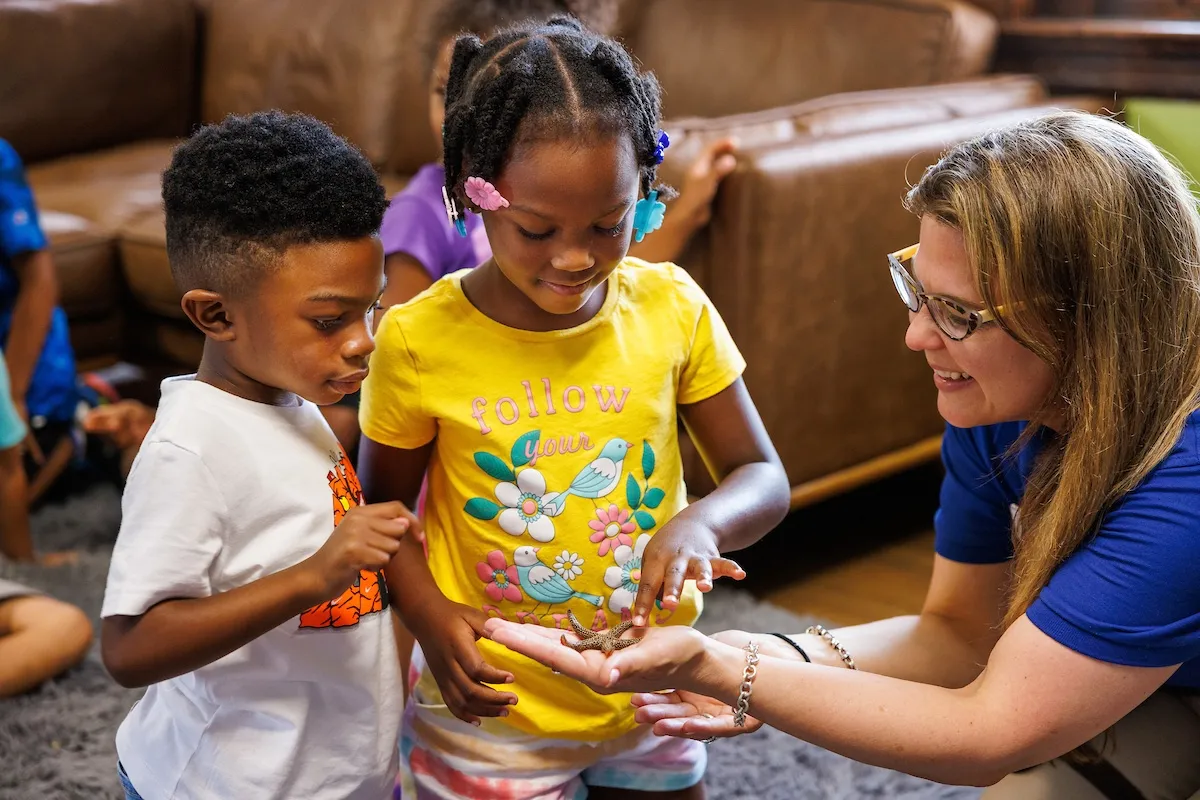Chattanooga, Tenn. (Feb. 10, 2023) – The Tennessee Aquarium’s education team is hitting the road and bringing the natural world to classrooms and communities across the region with the help of a pair of environmentally friendly additions to its outreach fleet.
The new Toyota RAV4 hybrids will ensure the Aquarium can continue reaching students around the Southeast while reducing its environmental impact. Wrapped with vinyl decals showcasing some of the saltwater and native freshwater species exhibited at the Aquarium, the pair of vehicles offer a new face to a program that has been a cornerstone of the institution’s interaction with the community since opening in 1992.
Education and outreach have always been central pillars of the Aquarium’s mission, but the pandemic necessitated a shift in thinking for how best to approach meeting the needs of students and teachers, especially in historically underserved communities.
“We wanted to refocus our efforts towards outreach programs that specifically target communities that — even before the pandemic — had less ability to visit the Aquarium in person,” says Natali Rodgers, the Aquarium’s director of learning and evaluation. “For us to continue to do what we do for years to come, we have to make sure everyone is represented at the table.”
For more than 30 years, the Aquarium has offered free admission to all students from Title 1 Schools. But, by also presenting hands-on science programming to students who might have less access to the Aquarium, outreach educators broaden the Aquarium’s impact and inspire students who might not have considered pursuing careers in biology or conservation science. Aiding in that effort are two community engagement educators who are fluent in both English and Spanish.


All the Aquarium’s outreach programs are state standards-aligned, an important qualification for teachers who want to use these programs as a formal educational resource. While educators often present programs in traditional educational settings, they also serve many community centers, libraries and other venues throughout the region.
The Aquarium’s increasing investment in outreach programming already is making a significant impact on students in regional low-income schools. In 2022, the Aquarium presented 129 outreach programs, reaching more than 8,200 individuals, including more than 4,800 students at Title I schools.
While its hands-on programming has accelerated, the Aquarium also provides digital-only alternatives in the form of virtual outreach programs. These remote presentations allow teachers around the country to take advantage of the Aquarium’s expertise in biology, ecology and conservation science.
Even as it doubles down on external outreach, the Aquarium also is expanding its on-site programming with new and returning offerings, including:
- Deeper Dives guided tours are led by knowledgeable experts from the education team and offer guests an exclusive 1.5-hour, behind-the-scenes adventure before the doors open to the general public.
- More adventurous types can sign up for all-new Deeper Dives: Feeding Frenzy tours. Launching Feb. 13, participants in these afternoon offerings can help feed the residents of the 618,000-gallon Secret Reef exhibit, including thousands of fish and an enormous, veggie-loving Green Sea Turtle.
- Sleep in the Deep, the Aquarium’s popular overnight “lock-in” style program, has finally returned, letting groups of 20 or more slumber away while toothy Sand Tiger Sharks and schools of shimmering saltwater fish glide overhead.
The Aquarium’s popular summer camps continue to offer area youth the chance to have fun while learning about the wild world around them. Some of the opportunities campers will be able to take part in this year include a chance to become “nature detectives” alongside scientists from the Tennessee Aquarium Conservation Institute and a nighttime quest to find nocturnal animals.
Summer camp registration opens March 6 for Aquarium members and March 13 for non-members.
Learn more about the Aquarium’s outreach programs, including booking information at tnaqua.org/educate/outreach/
Title I schools can receive up to three free programs per school each semester.
